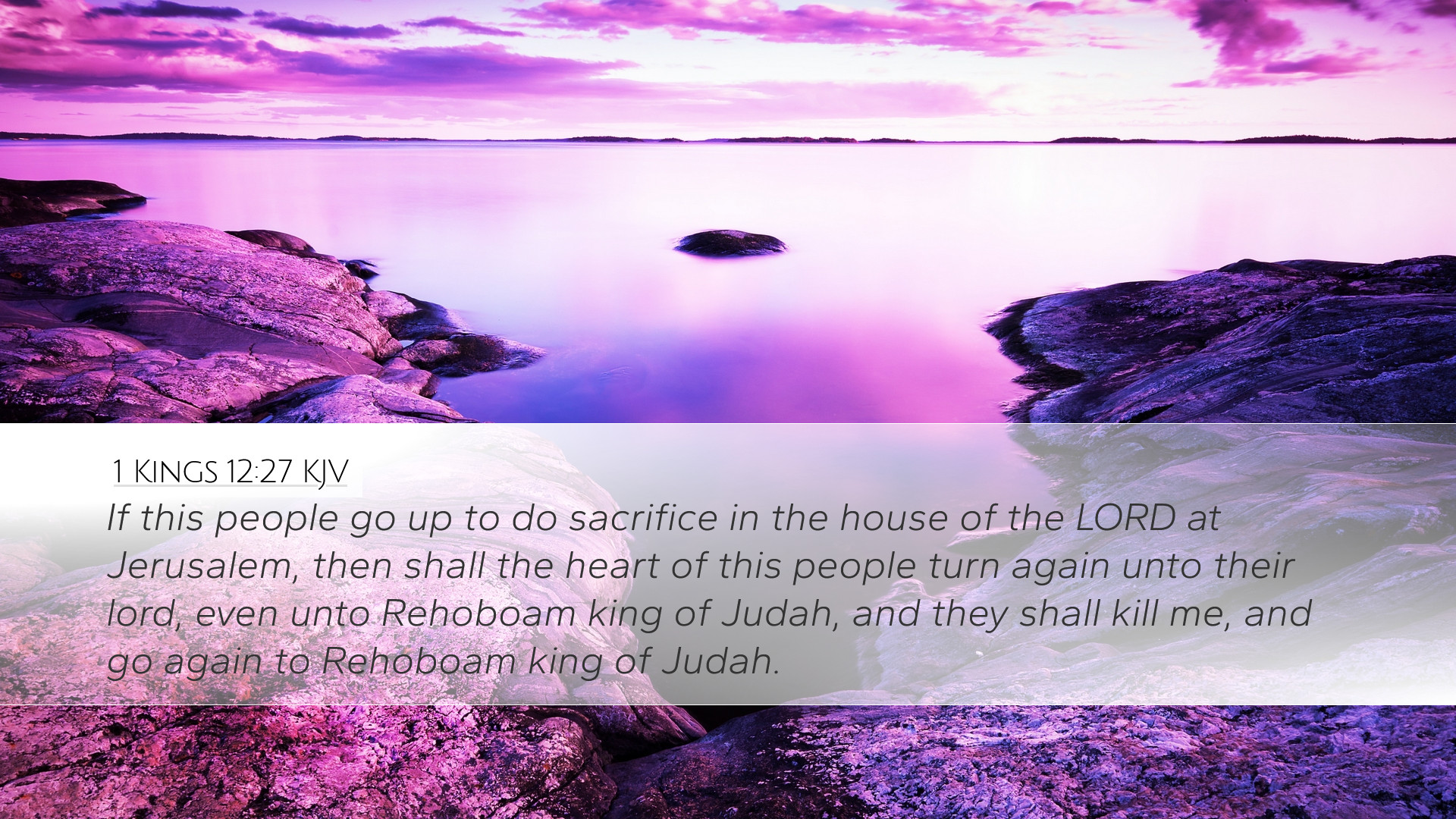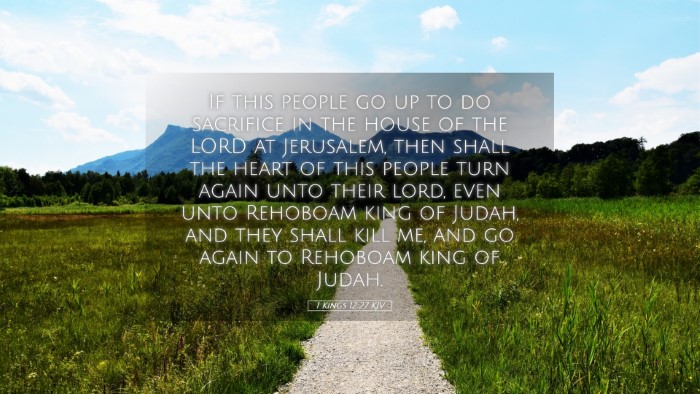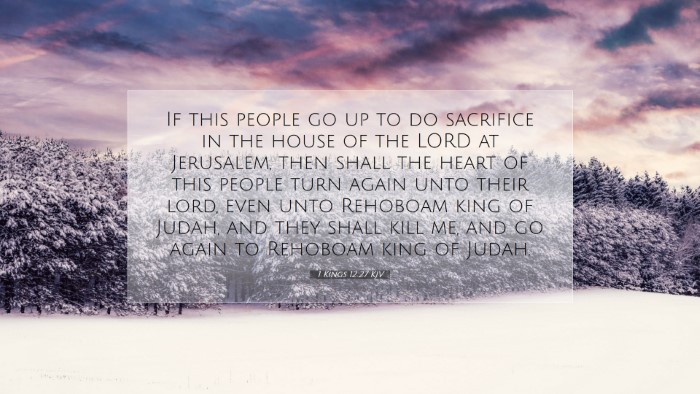Commentary on 1 Kings 12:27
Verse: "If this people go up to do sacrifice in the house of the LORD at Jerusalem, then shall the heart of this people turn again unto their lord, even unto Rehoboam king of Judah; and they shall kill me, and go again to Rehoboam king of Judah."
Context: This verse occurs during the reign of Jeroboam, who had led a significant portion of Israel to break away from the rule of Rehoboam. It highlights Jeroboam's awareness of a potential shift in loyalty among the people of Israel if they continue to participate in worship at the temple in Jerusalem, which is located in Judah. The fear of losing his kingdom drives his decision to establish new worship practices.
Insights from Matthew Henry
Matthew Henry provides a thorough analysis of the implications of Jeroboam's decision. He suggests that:
- Fear of Losing Power: Jeroboam's statement reflects a pragmatic yet ultimately insidious approach to governance, where preserving his authority takes precedence over loyalty to God.
- Worship and Identity: The act of going to sacrifice in Jerusalem represents more than just a physical journey—it signifies a recognition of the established covenant with God as the center of Israel's national identity.
- Spiritual Decline: Henry warns that Jeroboam's fear leads to a dilution of true worship, suggesting that the foresight of his people’s flocking to Jerusalem—to the true place of worship—scares him into creating a false religion.
Insights from Albert Barnes
Albert Barnes emphasizes the political implications of Jeroboam's fears and actions:
- Political Maneuvering: Barnes notes that Jeroboam's construction of golden calves and false worship sites in Bethel and Dan is an act of political expedience, designed to prevent the kingdom from returning to Rehoboam and ultimately to Judah.
- Idolatry and Consequences: He points to the trajectory of national disobedience, suggesting that Jeroboam’s fears manifest in the origin of idolatry in Israel, which would lead to dire consequences, both nationally and personally for the leaders involved.
- Spiritual Warfare: Barnes highlights that Jeroboam’s choices introduce a profound spiritual crisis, setting the stage for conflict between true worship and idolatry, as well as between the kingdoms of Israel and Judah.
Insights from Adam Clarke
Adam Clarke offers a layered interpretation that combines historical, theological, and practical perspectives:
- Historical Context: Clarke focuses on the turmoil following Solomon’s reign, where the people of Israel sought a return to more righteous leadership, which Jeroboam exploits.
- Fear as a Motivator: He discusses how fear can lead leaders to make grievous errors, noting that Jeroboam’s apprehension of losing control provokes him towards idolatrous practices that corrupt true worship.
- Theological Implications: Clarke suggests that God's intentions for His people are consistent, and that Jeroboam's misguided actions invite divine judgment upon Israel, impacting future generations in their relationship with the Lord.
Theological Reflections
This verse and its commentary harbor significant theological implications for understanding leadership, worship, and community identity:
- Leadership and Accountability: It brings to light the responsibility of leaders to guide their followers in truth rather than under the guise of political necessity.
- The Nature of Worship: The established system of worship emphasizes that divinely ordained practices should not be altered for mere convenience or fear but should draw people closer to God.
- Legacy and Consequences: The reverberating consequences of Jeroboam’s decision affect the course of Israel’s history and invite reflection on how current leaders can learn from past mistakes to avoid similar pitfalls.
Practical Applications
For pastors, students, theologians, and Bible scholars, there are profound lessons and applications to draw from this verse:
- Importance of Faithfulness: Leaders should remain steadfast in their commitment to guiding their congregations based on biblical truth, resisting the temptation to compromise for the sake of popularity or control.
- Understanding True Worship: Encourage an understanding of what constitutes true worship in the modern context, challenging congregations to discern the authenticity of their spiritual practices.
- Value of Community: Pastors must build community that prioritizes unity within the body of Christ, ensuring that believers feel welcomed to engage in authentic worship without fear of alienation or retribution.
Conclusion
1 Kings 12:27 serves as a poignant reminder of the complexities of leadership, loyalty, and worship in a community of faith. Through the insights provided by Henry, Barnes, and Clarke, it is clear that the motivations behind worship practices have profound implications for both individual and communal fidelity to God. Leaders in every generation must heed the warnings of Jeroboam's actions, striving instead for faithfulness to God’s commands and principles.


